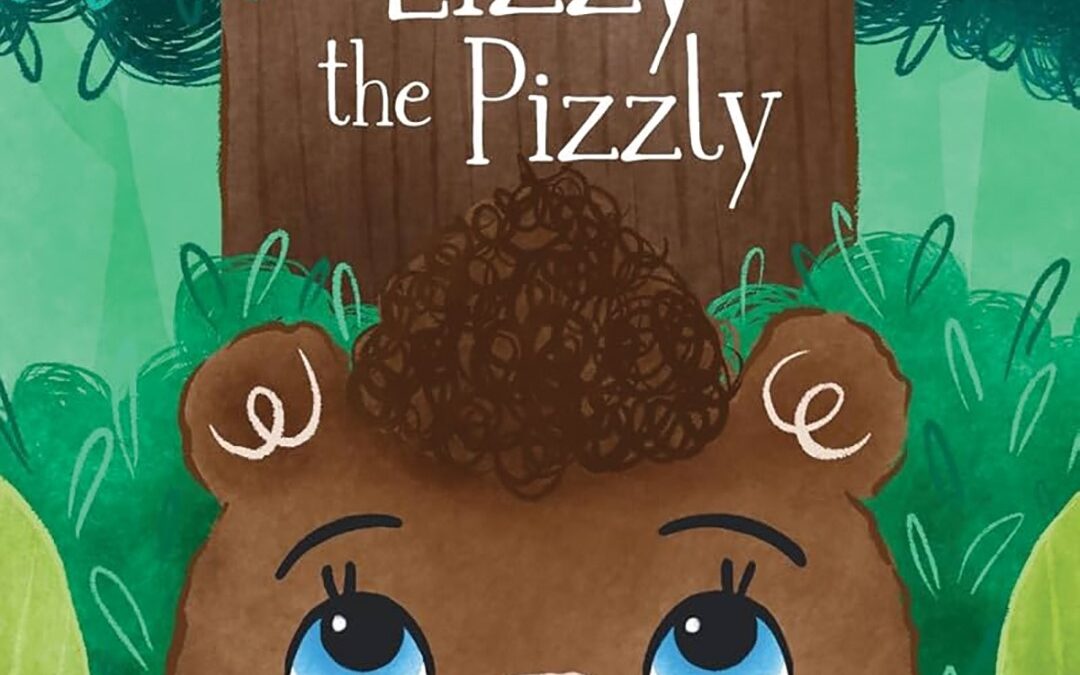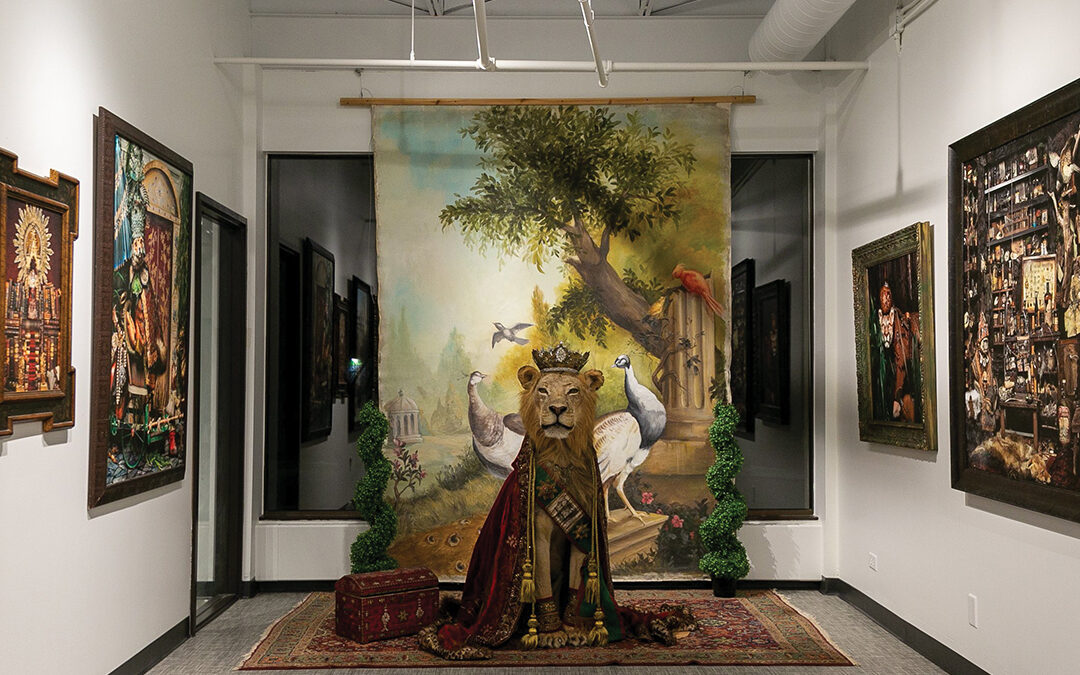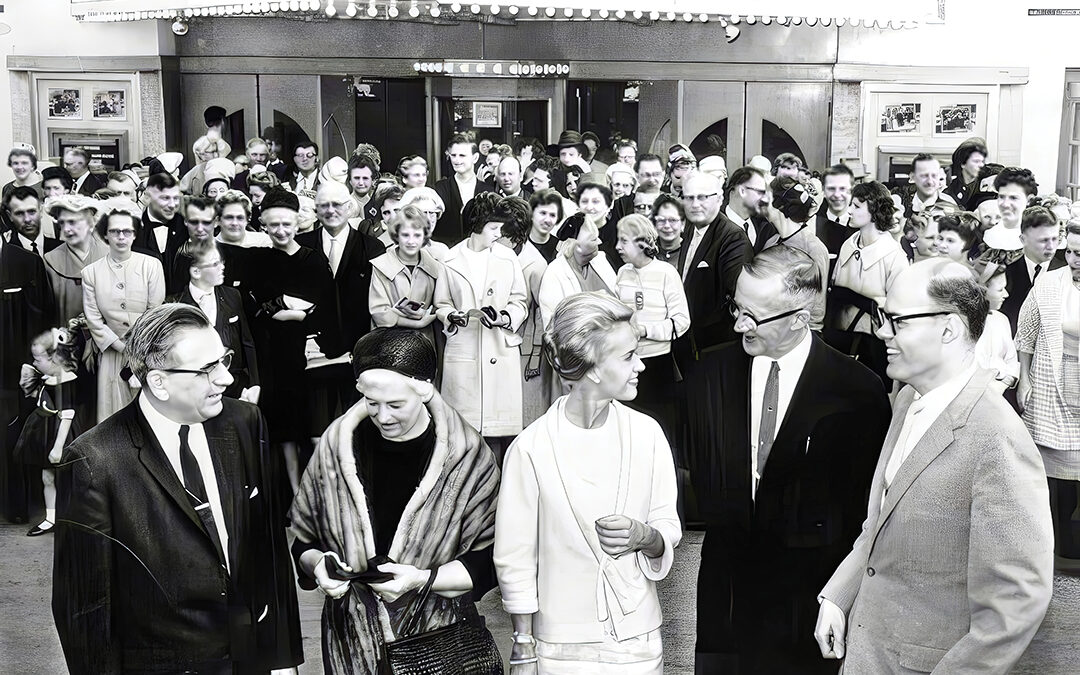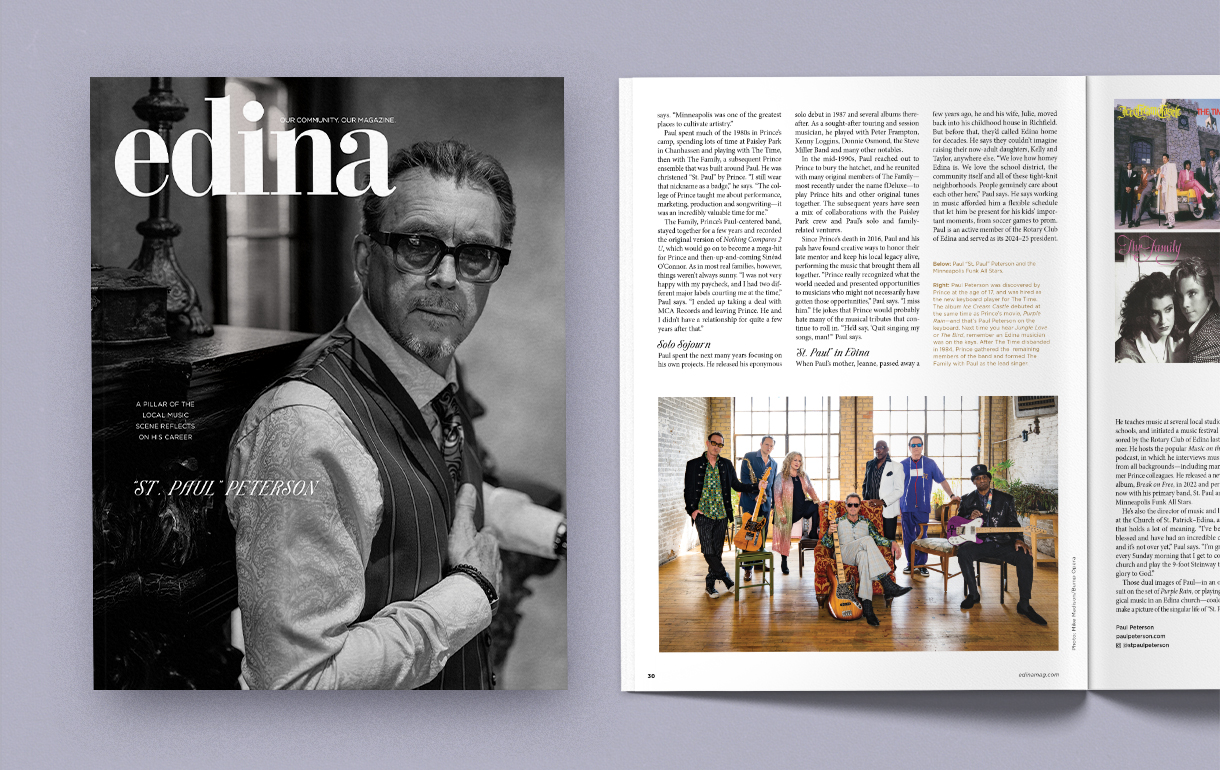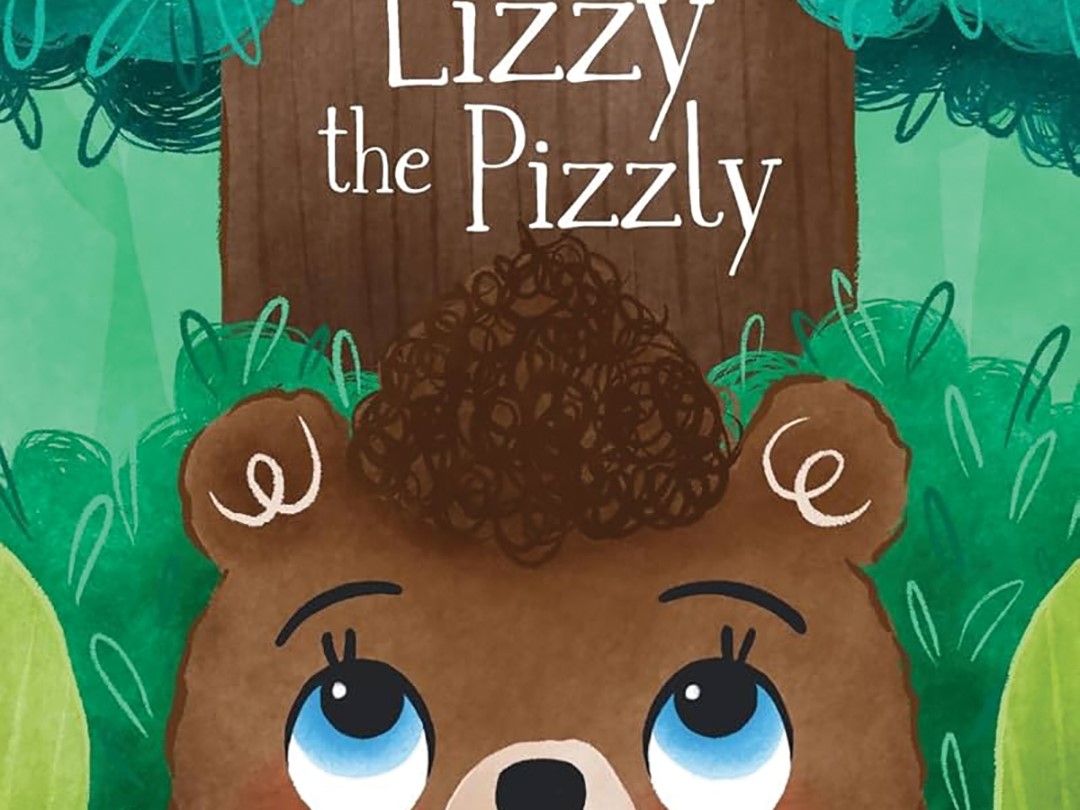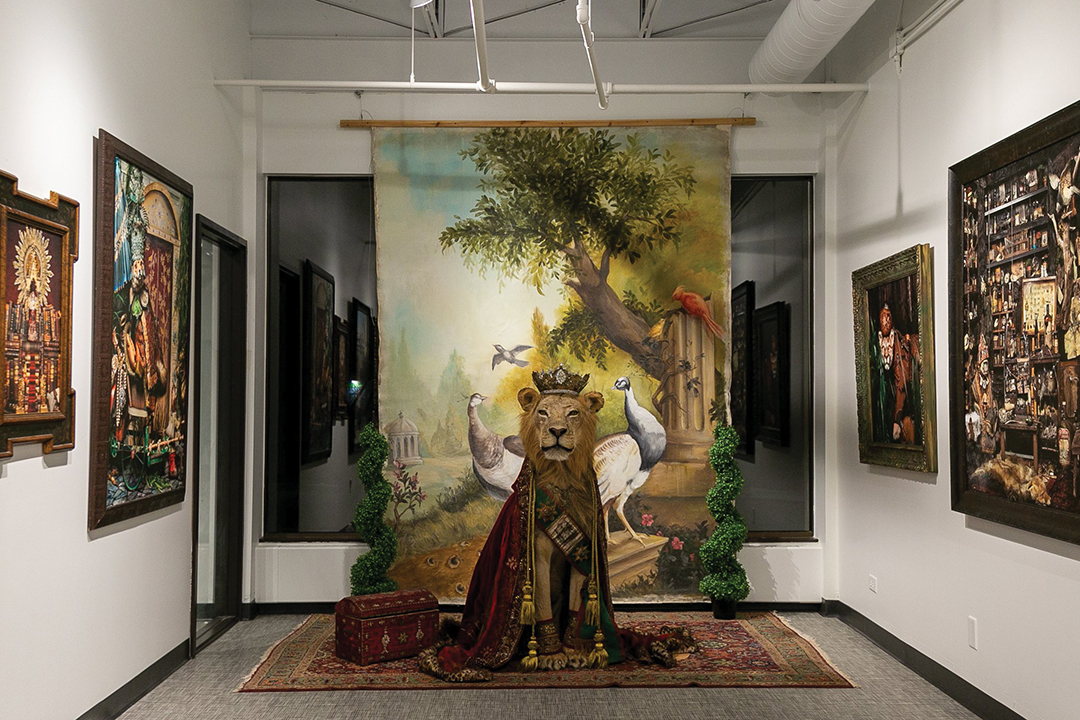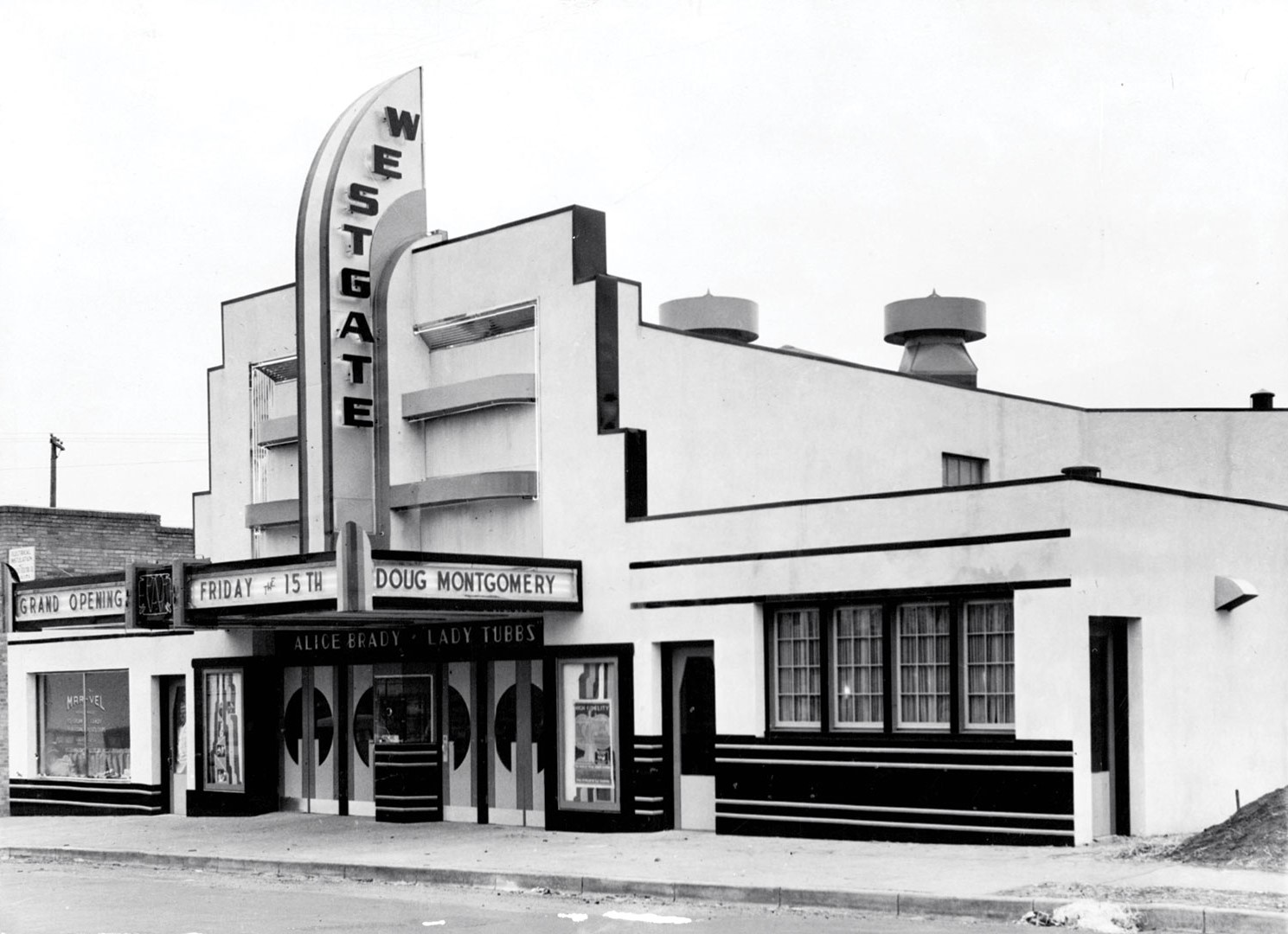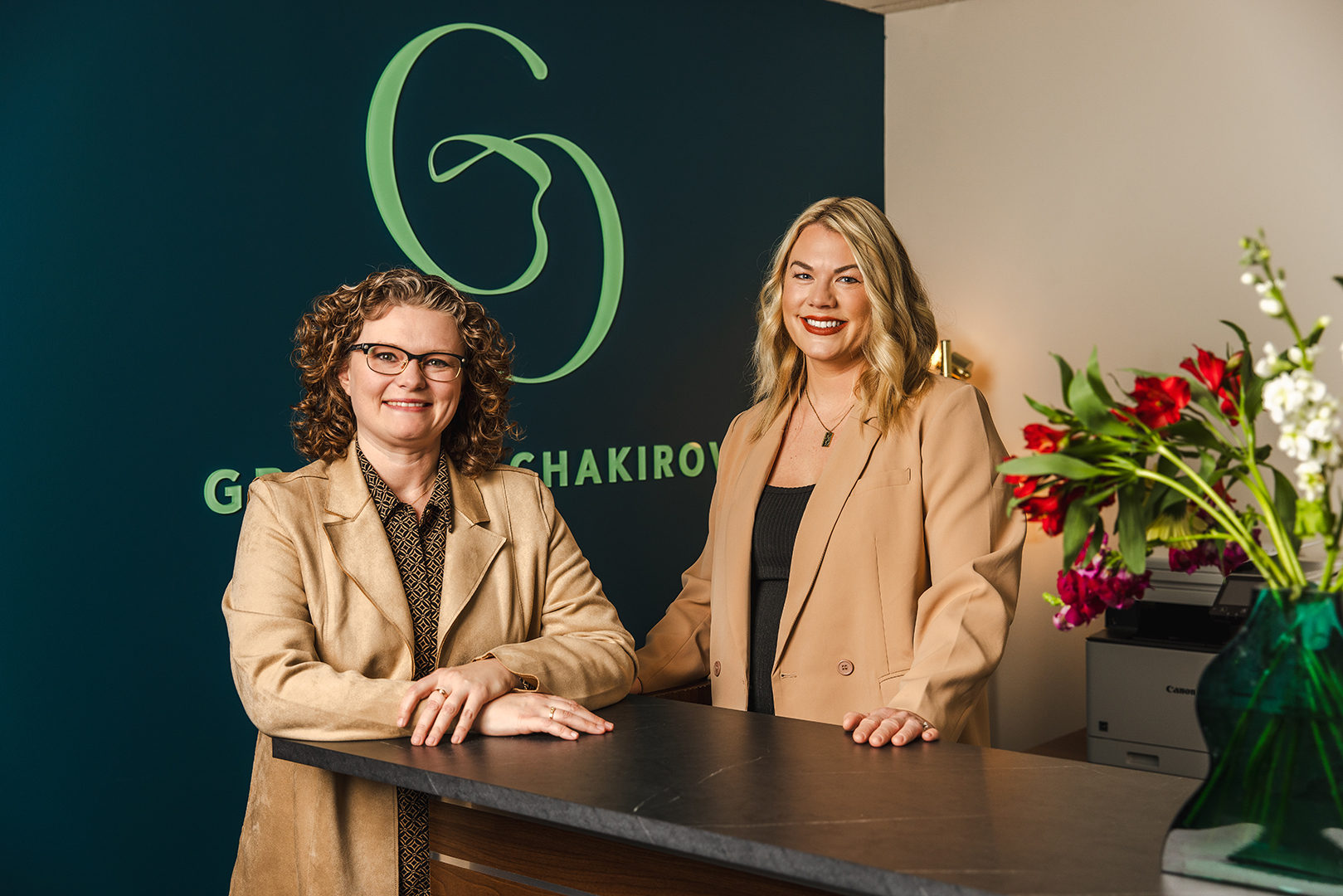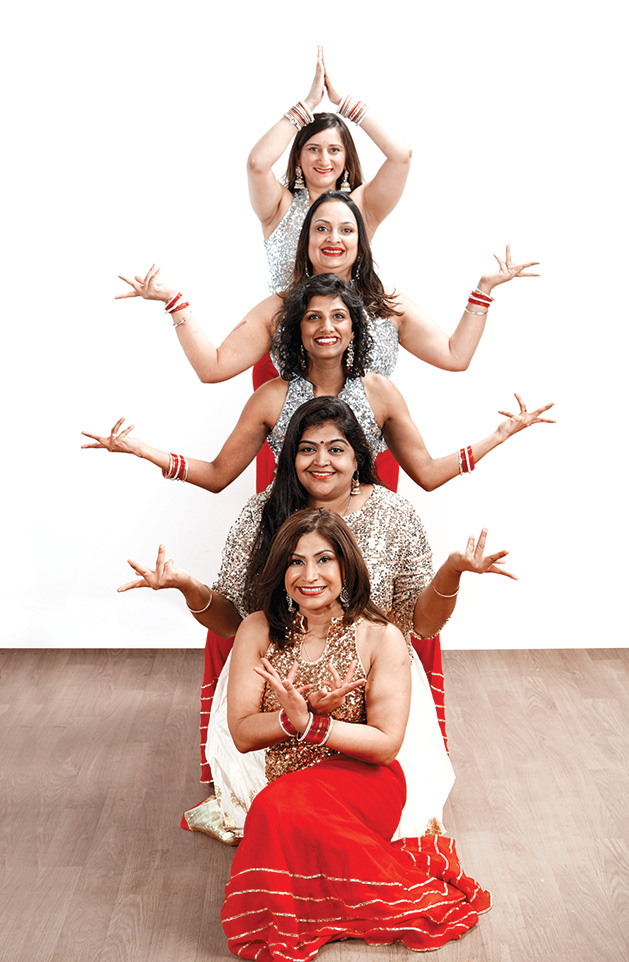
Top to Bottom: Komal Khatri, Shefali Gupta, Priya Verghese, Jaishree Kiran Kumar, Kamal Aggarwal. Photo: Joel Schnell
Mollywood Productions’ “Saree-ously Speaking” uses humor to help people understand each other.
Bollywood dancers in their orange and pink colored sarees momentarily freeze on stage as a spotlight shines down on a woman dressed as a reporter. She looks at the audience and says, “When you are so engrossed in a tapestry, all you see are its lines and figures. Unless you step away, you cannot appreciate its brilliance, color and sheen. I invite you all to a thought that Americans, no matter their background, origin or culture, are united in their singular desire to create a life finer than they had experienced before.”
That is part of the final message from a play called Saree-ously Speaking? Uff Da! created by Kamal Aggarwal. The Edina mom’s production company, Mollywood Productions, is dedicated to promoting socially relevant issues related to immigrants, minorities and women.
“I feel the time is right to promote more diversity and the feeling that differences are fun and they make it more interesting,” Aggarwal, who moved here from India more than 20 years ago, explains.
Saree-ously Speaking was performed in last year’s Fringe Festival. The 55-minute play is Aggarwal’s labor of love. It follows the Joshis, a rich Indian family, who move from L.A. to a fictional Minnesota small town called Lake UpNorth. Ravi is a consultant who’s asked to monitor and recommend changes in a factory that is the lifeline to the small northern Minnesotan town. Ravi’s wife Radhika, son Rohit and mother Sweety all try and adapt to life in a small town while the locals don’t take kindly to foreigners moving into the neighborhood. A heavy subject, but the play tackles the serious issues by weaving threads of humor through the dialog. There are jokes about Indian and small-town Minnesotan cultures and odes to the hot dish and chai.
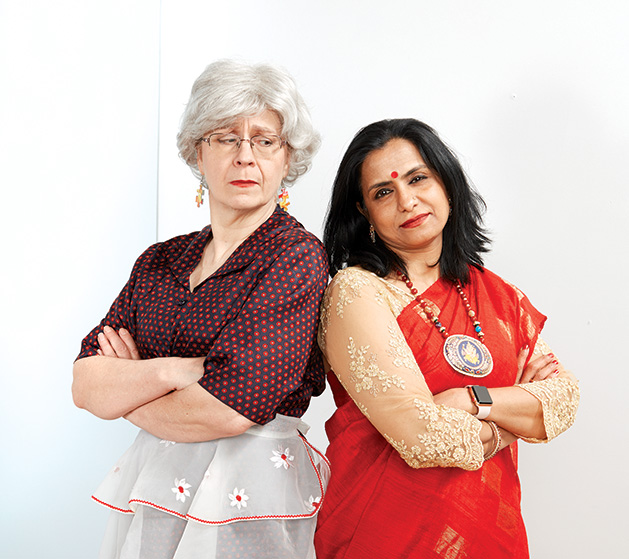
“I always like to handle a tough topic with humor,” Aggarwal says. “It’s still always going to be an element of fun but hit some kind of a social message.”
She also tweaked the title. “We wanted something Indian and yet something that was easy to say and something a small town Minnesotan could relate with,” she says. “We changed it from Seriously Speaking to Saree-ously Speaking which made it fun, which made it flow and combined both the cultures.”
Combining the cultures in an authentic way for the play was another challenge.
“Being an Indian, being an immigrant, I can think about instances that have happened with me. I can think from that perspective,” Aggarwal says. “But I can’t think what’s going on in the head of a small town person who sees his neighborhood changing and who sees all these new people coming in and bringing in their own things to town.”
So she enlisted the help of two playwrights: a native Minnesotan, Brianna Sundgaard, and an Indian, Lakshmi Ramakrishnan. She also found a small-town consultant and had all her actors chime in. That attention to detail and dedication to an accurate portrayal is what drew Cynthia Schreiner Smith to play a major role in the play.
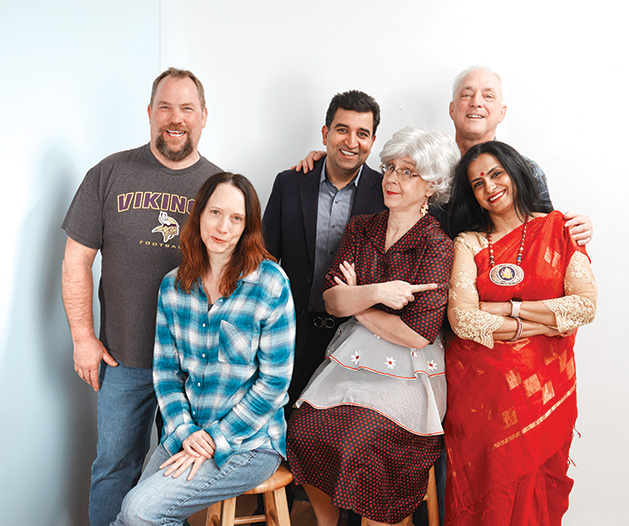
From left (top row, then bottom): Lenny Erickson, Amit Kachru, Michael Novak; Linda Berglund , Cynthia S. Smith, Manju Nayar
“I really applaud Kamal for what she did. It was no easy feat to get all these people together to get this written,” Schreiner Smith says. Her character, also named Cynthia, is a middle-aged mom whose social circle suddenly changes when Sweetie, the grandma of the Indian family, enters the picture and becomes the popular one.
“I just loved the idea of the two cultures and exploring what that was like especially in this day and age with the messages we are getting about immigrants in the news,” Schreiner Smith says. “[It was] a good project that I could get behind to show people are people wherever they’re from if you take the time to get to know each other.”
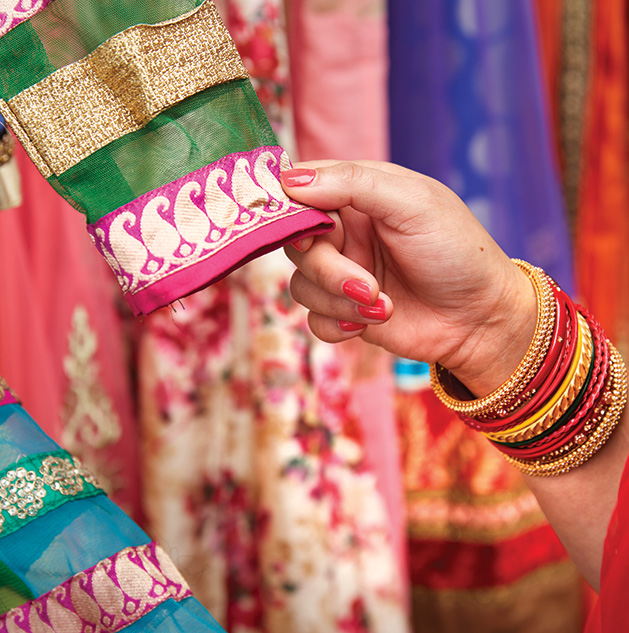
Photo: Tate Carlson
The script is what drew Michael Novak to the play. He was cast as Bert, Cynthia’s husband.
“It was a difficult role because he was a bigot and not a nice person, but at the end of the play he embraces the other culture,” Novak says. He mentions that during rehearsals a fellow actor was having an issue with their sick child. “Another cast member said it doesn’t matter where we’re from. We’re all the same and we all want the same thing in our lives. Basically, we need to be nice to people and help people out. Unfortunately we don’t have enough of it in our particular society in this point in time,” he says.
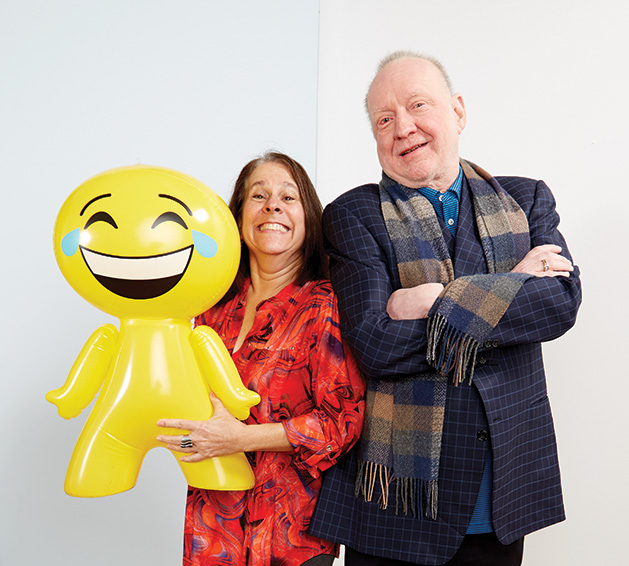
From left: Sarah Routman and Nick Radovich.
Manju Nayar, who plays Sweetie, agrees with Novak.
“I’m hoping that the audience took away a lot of that message, especially in this time when there is a lot of conflict going between different cultures,” Nayar says. “I hope this helped create a better understanding of the diverse cultures that are here in the state and I hope that it helped people who came to watch.”
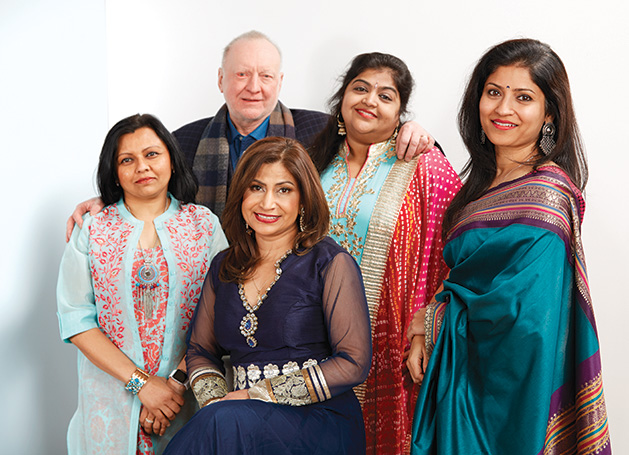
From left: Nidhi Gupta, Nick Radovich, Jaishree Kirankumar, Lakshmi Rajaram and Kamal Aggarwal.
Those who came to watch received a special take-home gift.
“At the end of our play we handed out postcards,” Aggarwal says. “They were meant to reach out to someone that you see, but don’t really know that well. Maybe it’s a neighbor that you see pick up the paper every morning but you’ve never really broken the ice or had a conversation before. Or a co-worker that you run into at the coffee stand but never really engage in a conversation. I had recently got to know a neighbor who came to see the show and brought a few other neighbors with her. And a few weeks passed and I got the postcard in my mailbox and got invited to coffee and got to know some other neighbors. In a way, it broke the ice within my own neighborhood.”
But Aggarwal says she isn’t done with breaking down barriers. She and the cast plan on expanding the play and bringing it back to a different theater in the near future.
“I could see it being two hours with intermission,” Schreiner Smith says. “Just so that we can explore the characters a little more and have more of a celebration of the Indian culture. Bringing more of the dances.”
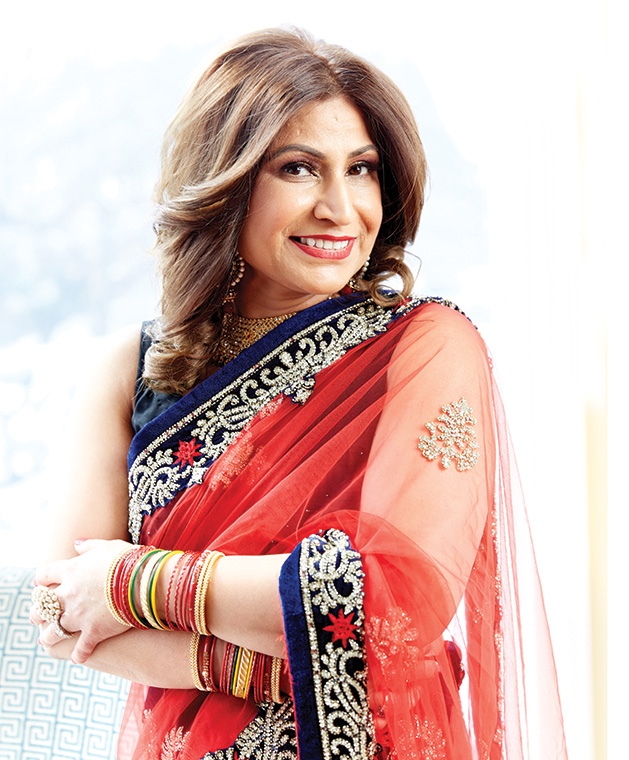
Photo: Tate Carlson
But Mollywood Productions focuses on more than plays. Aggarwal has her heart set on a public service announcement about Sikhism, a faith to which she belongs.
“I found you can educate people, but once you give them a little bit, then they want to go and research more,” she says. “When you can ignite that will in them to go by themselves and find out more then I think it hits its purpose more. So for me, instead of giving a whole big message I feel if I can inspire them to go and Google and search about some little tidbits that were in there, that is better service.”
It’s all part of her grand plan to produce one to two productions a year that highlight messages that are relevant to immigrants, minorities and women. She says the goal of Mollywood Productions can be summed up by one of the closing lines of her play.
“May American soil always be blessed with every American … nourishing the spirit of community and economic vitality by peppering it with diverse heritage and ideas—A perfect hot dish if you will.”

